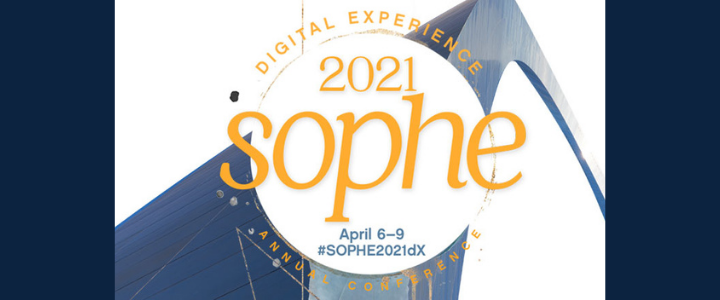
If you missed any session from SOPHE 2021dX – you can find it in SOPHE’s Core.

Check out SOPHE 2021dX Board of Trustee Dr. Darcy Scharff’s welcome.
SOPHE 2021dX Educational Tracks:
1. Leadership, Mentoring and Training the Next Workforce
The health education and promotion profession provides opportunities for growth and professional development through mentorship, professional preparation, and continuing education while focusing on best practices in pedagogical procedures and techniques. Through the occurrences of the COVID-19 pandemic, professionals garnered experience and knowledge to share with the next workforce on increasing these skills.
2. Systems Thinking, Interconnectedness and Health in all Policies
Health educators regularly face complex public health problems that are multi-causal including social determinants of health. As such, they require an array of health education and promotion tools (e.g., health in all policies) and non-public health partners to address the interrelatedness of aspects of the problem.
3. Social Justice and Health Equity
A social justice approach to health education and promotion guides us to work towards creating equity to improve the public’s health. Addressing social determinants will help us move toward achieving health equity. However, what is missing from social determinants models is an explicit recognition that discriminatory systems related to race, ethnicity, immigration status, LBGTQ+, disability, and other forms of prejudices have historically helped create inequities in health outcomes.
4. School Health
Prek-12 schools are uniquely positioned to promote positive lifelong health behaviors through the design, implementation, and evaluation of coordinated school health education, programs, and services. During the recent pandemic, the country witnessed schools and educators coming together to fulfill the unprecedented needs of students and families — including providing meals, technological equipment, virtual instruction, and a sense of normalcy — with very little time, training, or resources.
5. Digital Health, Health Communication, and Health Literacy
The COVID-19 pandemic has highlighted the critical need for accurate, timely, clear and culturally and linguistically appropriate communication of health information, delivered by trusted messengers through targeted channels. Digital communications have dominated the formation of consumer knowledge, attitudes and behaviors related to COVID-19, but many times not reaching those with low health literacy skills.
